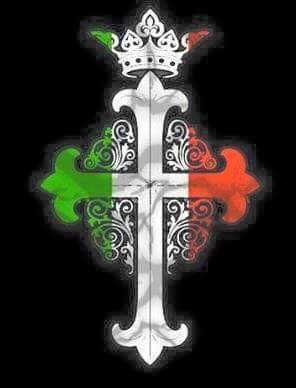Don't Hate The Playa, Hate The Game: The Political Economics of F.A. Hayek
F.A. Hayek is best known for his book The Road to Serfdom (1944), also, The Fatal Conceit (1988) and The Constitution of Liberty (1960). Hayek is a bastion of liberal (Libertarian) economics. He would undoubtedly argue that there is no such thing as Capitalism, it's an economic model based on the market. He did argue that economics are not determined by organizations, the market is just a tool... a set of rules that organize the "game" of economic interaction. To use the analogy of a ballgame (any kind, take your pick), the market is the set of rules that govern the behavior of the players. If you try to change the rules to make the game "fairer" the game itself suffers. This is the problem with Socialism- it attempts to determine the outcome of the game.
The market then, according to Hayek, is a referendum that determines what goods and services are produced. The consumer "votes" with his or her dollars as to which goods and services are made. The problem with Communism/Socialism to Hayek isn't ideological, it's only that neither works.
Hayek was born in Vienna. His father was a doctor and his family a part of Austrian nobility. He almost became a psychiatrist, he was very interested in the workings of the human mind and how people process information. He fought in WWI and afterward attended the University of Vienna. When he entered college, he was drawn to Fabian Socialism, but quickly switched to the Austrian School of Economics where he studied the writings of Adam Smith. Smith (The Wealth of Nations) believed that if people are allowed to buy and sell unencumbered, the economy will flourish. It is government intervention that creates problems because it inhibits people's ability to act in their own interest.
He became an acolyte of Menger at college. Menger was one of the first to use the law of supply & demand. This became the underpinning of Hayek's economic works. He received a doctorate in Law and another in political economics. He met Ludwig von Mises who influenced him greatly. Mises believed that Socialism is impossible because it eliminates voluntary interaction.
Hayek went on the London School of Economics. He was brought in to refute John Maynard Keynes' Demand side economic policy. The market, according to Hayek is a spontaneous order. It receives and acts upon signals from prices and profits that drive the order (Smith's "Invisible Hand"). Hayek believed that the division of labor and the division of knowledge are synonymous... Socialism eliminates knowledge which only appeals to the intellectually lazy. With Socialism there are no signals for the central planners to determine prices and production. Keynes took a more modifies position- Socialism Lite. Central Planning was doomed to failure because if/when bureaucrats make mistakes, there is no corrective mechanism to straighten things out.
In 1944, he published The Road to Serfdom, a warning about the dangers of totalitarian governments. It was about this time he established the Mt. Pellerin Society a group of liberal (Libertarian) scholars. In the 1960's he moved to Chicago and began researching at the Univ. of Chicago. He traveled and lectured. He wrote the Constitution of Liberty as an extension of John Stuart Mill's On Liberty. He write to the effect that laws cannot be made, they are discovered. They are a natural evolution of trial and error. The role of government is to act like a referee in a ballgame.
He also wrote a 3 volume set called Law, Legislation and Liberty. In vol.2 he argues that Social Justice is nonsense. At its best it's useless and at its worst, harmful. He also wrote that democracy and liberty are not the same. In 1974 he received the Nobel Prize for economics. It came at a time when he felt that his life was meaningless. His work, except for the Road to Serfdom had been pretty much ignored. However, when the Stagflation of the late 70's came about he became relevant. All that he had warned about came true. It was Hayek's work that drove the world economy in the 80's. In '88 he wrote The Fatal Conceit in which he warns against government by the whims of despots. Hayek died in 1992 after receiving awards from both Britain and the US for his contributions.



Like Marx, Keynes doesn't even deserve a footnote in history!
Even bad ideas need to be retained so they can be explained and refuted. Otherwise, they will just get repeated. coughvenusprojectandzeitgeistmovementcough
Like Tom Sowell says "Even the worst of us can serve as a bad example!" They just keep renaming Socialism and trying it over and over...as long as those crooks can profit...
Really informative - thankee!
Thank you...He is the Man!
Thanks for the info-- I'd heard of Hayek, but didn't really know much about him.
He's the biggest reason I chose Economics for my Masters.